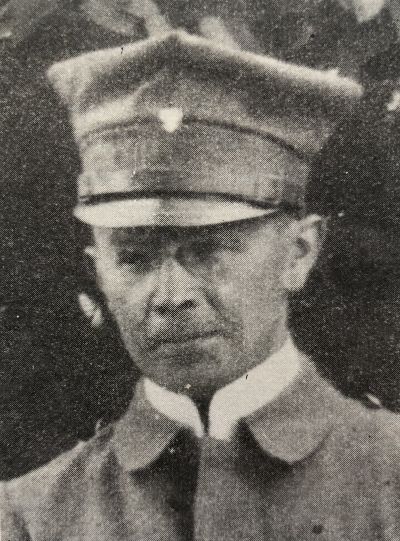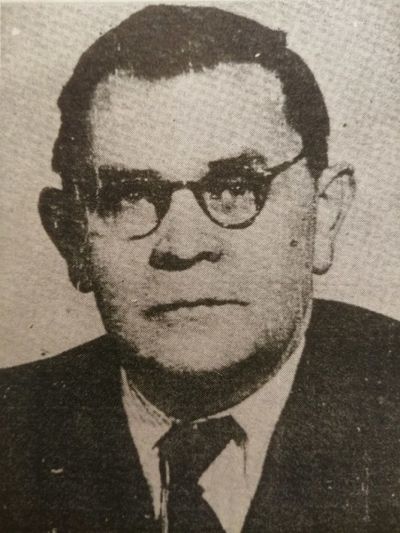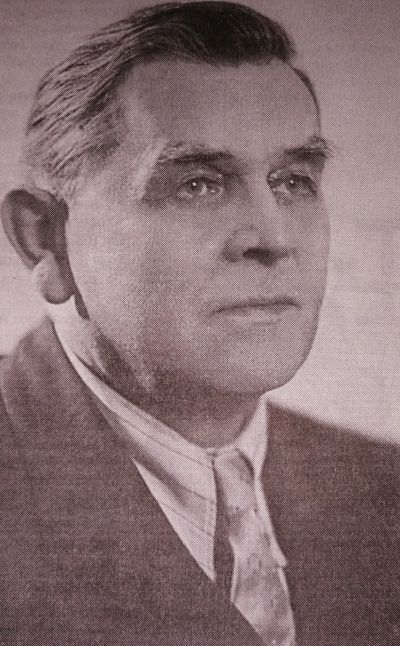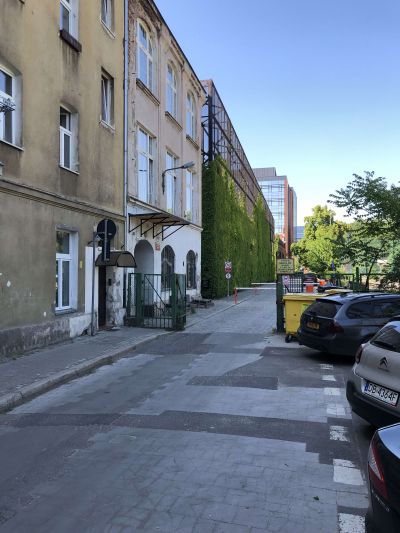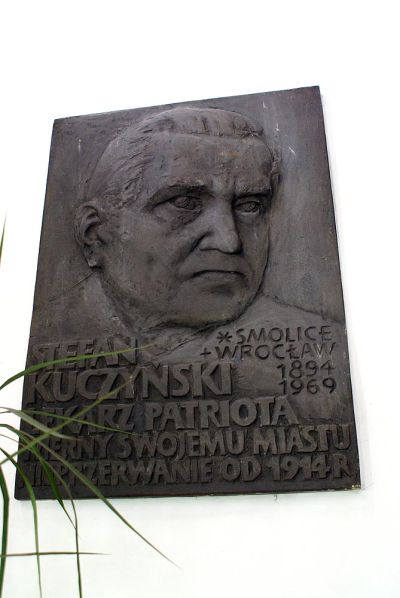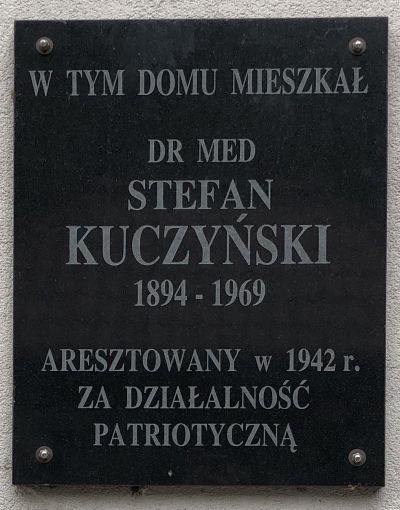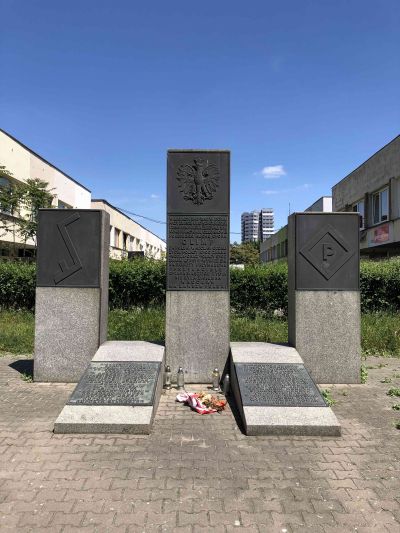Stefan Kuczyński (1894–1969). The “patriotic doctor” from Wrocław

Stefan Ludwik Kuczyński was born on 25 August 1894 in Smolice/Smolitz, the son of Roch and Helena Kuczyński. In Smolice, he attended the primary school before graduating to the intermediate school in Rawicz/Rawitsch. In 1914, he enrolled as a medical student in Wrocław/Breslau. However, his plans were interrupted by the First World War, which broke out during the same year. He was conscripted into the army and after the war ended in 1918, he was assigned to a medical corps operating in the area around Rawicz and participated in the Greater Poland uprising. Prof. Gerwazy Świderski remembers that Kuczyński showed great courage during the fighting, and, particularly impressively, that he participated in the battle for control of the train station in his hometown of Smolice. In 1919, he worked in the general hospital of the Polish Army in Poznań/Posen. Soon afterwards, however, he left his job there and returned to Wrocław that same year to complete his interrupted medical studies. He remained in the city until he died.
The end of the First World War and the years of conflict over the borders of Poland became a driving force for change in Wrocław and Lower Silesia. Stefan Kuczyński was an eager and active participant in the Polish People’s Council (Polska Rada Ludowa), which represented the local Polonia. During this period, he and other activists had two primary goals: keeping national and political awareness alive and helping prepare for the referendum in Upper Silesia.
“The spring of 1921 drew closer and with it, the date of the referendum. The propaganda work grew more intense by the day. We met in the homes of our colleagues [...]” (Gdy Polska..., p. 161).
Stefan Kuczyński was also active in other areas. At the request of the medical student Halina Szuman, he began working at the Polish “little school”, which at that time was located in Enderstrasse 8 (today: Ulica Henryka Pobożnego). Shortly afterwards, lessons were moved from a private apartment to a building in the Neue Gasse (today: Ulica Nowa). The building was in very bad repair, and presented the school with new challenges. Kuczyński helped with the renovation and, among other things, worked to restore the library. He took on responsibility for caring for the “little school” and the library, procured a heater and crafted school benches himself, since there were not enough for all the children. He also designed teaching materials himself for the history and geography lessons. During this time, he also worked in the People’s Library (Biblioteka Ludowa) and in the Polish referendum bureau (Polskie Biuro Plebiscytowe) and continued his studies, for which he was awarded a scholarship from Karol Marcinkowski, as Prof. Gerwazy Świderski reported:
“Marcinkowski was a mentor and role model for Dr. Kuczyński. Kuczyński also had Marcinkowski to thank for his scholarship. It was he who founded ‘Polonia’, a philomathic society whose activities contributed greatly to the promotion of academic study in Poznań. The main purpose of the organisation was fundamentally to provide scholarships to students at the universities of Breslau, Berlin, Dresden, Freiburg and Greifswald.” (Doktor medycyny, p. 15)
In 1924, Kuczyński completed his studies and began working as a physician. During the Second World War, he put himself at risk by helping the Polish forced labourers who came to Breslau. He issued them doctor’s notes which enabled them to be assigned less physically demanding work. One of these workers, Felicyta Podlak-Damczyk, who came into contact with him in Breslau in 1941, remembered him as follows:
“Dr. Kuczyński […] spoke less about my state of health, but rather talked for a whole hour about the ruins of Polish culture in Breslau, about where to find the history of Wrocław, and about the work of the Polonia living here. […]” (Polska grupa konspiracyjna, p. 16)
On 18 June 1942, Kuczyński was arrested and forced to give up his medical practice. He was accused of having organised “activities of a highly treasonous nature”. The charges related in part to his collaboration with the “Olimp” organisation in Breslau, a Polish underground group founded in 1941 whose work focused on the integration of Poles, self-organisation and acts of sabotage. The trial was held nearly a year later. In the process, some of the charges were dropped. Kuczyński was released and was able to resume his medical work. During the war, he helped a group affiliated to the Polish Home Army in Kobylin called “Lotos”, which cared for sick Poles.
On 25 August 1944, as the Red Army advanced, Breslau, along with other German towns and cities, was declared a fortress. In January 1945, the situation changed, and preparations were made to defend the city. Stefan Kuczyński was assigned to two institutions: the practice for internal medicine in Wallstrasse 20/22 (today: Ulica Włodkowica) and the surgical supply station in the bunker in Posener Strasse (today: Ulica Poznańska). As the Red Army advanced further, the order was given to evacuate the civilian population. As a qualified doctor, Kuczyński was required to remain in the fortress to provide medical assistance. His wife and children were ordered to leave the city immediately. However, he succeeded in sparing his family the ordeal of having to flee the city in freezing temperatures of minus 20 degrees.
During the fighting around Breslau, he helped those Poles who remained in the city. One of the many camps that remained in the city despite the fighting was on Bergstrasse (today: Ulica Góralska). The barracks held several thousand Poles who were constantly exposed to fire. Thanks to an intervention by the senior doctor of the fortress, and by using an excessive amount of bandaging material, Kuczyński succeeded in persuading the Germans that the prisoners in the camp in Bergstrasse needed to be evacuated. Since at that time, medical services in Breslau were in serious danger of collapsing, the defenders of the city felt that it would be better to move the prisoners to a safer location.
Stefan Kuczyński survived the bloody battles for the fortress and remembered the day when no more shots were heard in the city:
“Finally, the 7th of May arrived. Cries of victory could be heard all around the city. We saw the first Polish soldiers. On their helmets, there was a white eagle, a holy emblem for us. We greeted them with bated breath and suppressed sobs. The ‘iron gate’ which had blocked the path to our new tasks ahead had been broken open. We had to extinguish the fire that had spread, to battle against typhus and cholera, to find people places to live in the city, to assert law and order, and finally, to raise Polish Wrocław from the ruins.” (Festung Breslau, p. 57)
After the end of the war, Kuczyński was involved in the rebuilding of the healthcare system, and was among those whom we have to thank for the “raising of the city from the ruins”. In 1957, he was elected chairman of the Lower Silesian Society of Doctors (Stowarzyszenie Lekarzy Dolnośląskich). He was presented with honours including the Knight’s Cross of the Order of Polonia Restituta and the Rodło Medal. He continued to work in a district clinic until his death in 1969. In the words of Prof. Świderski, he had “more than repaid his debt to Marcinkowski for the scholarship for his entire medical studies”. (Doktor medycyny, p. 15)
Kacper Rosner-Leszczyński, May 2023
Bibliography
Bruziewicz-Mikłaszewska Barbara, Doktor Ludwik Stefan Kuczyński (1894–1969) i jego rola w międzywojennym Wrocławiu oraz odtworzeniu samorządu lekarskiego, in: Aktywność polskich lekarzy w dwudziestoleciu międzywojennym – w stulecie powołania Izb Lekarskich, ed. Bożena Urbanek, Magdalena Paciorek, Maria Ciesielska, Warszawa 2020, p. 89–94.
Gleiss Horst, Breslauer Exodus 1946. Beiträge zur Dokumentarchronik einer Stadt und ihrer Menschen, Rosenheim 2003.
Konieczny Alfred, Polska grupa konspiracyjna “Olimp” w wojennym Wrocławiu, Wrocław 1989.
Kuczyński Stefan, Festung Breslau, in: Trudne dni (Wrocław 1945 r. we wspomnieniach pionierów) Vol. 1, ed. by Mieczysław Markowski, Wrocław 1960, p. 43–57.
Kuczyński Stefan, Gdy Polska odzyskała niepodległość, in: Do nich przyszła Polska, ed. by Anna Zawisza (2nd edition), Wrocław 2018, p. 157–171.
Świderski Gerwazy, Doktor medycyny Stefan Kuczyński – legendarna postać Wrocławia (1896−1969), “Medium. Gazeta Dolnośląskiej Izby Lekarskiej” No. 10 (207) 2007, p. 15.
Zawisza Alicja, Studenci Polacy na Uniwersytecie Wrocławskim (1918–1939). Katalog zachowanych archiwaliów, Wrocław 1972.
Online publications
https://krotoszyn.naszemiasto.pl/nasi-powstancy-dr-ludwik-stefan-kuczynski-ze-smolic-zdjecia/ar/c1-7600819 [Accessed: 16/5/2023]
